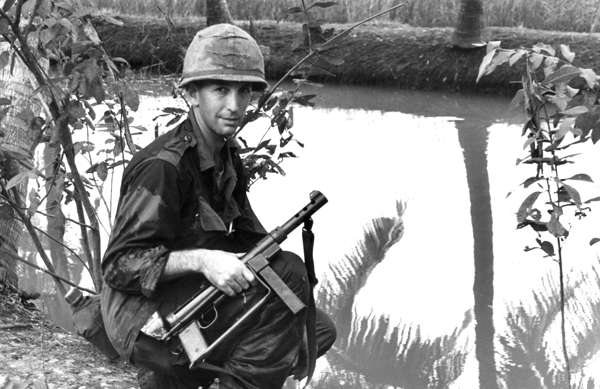|
Reviews of Recent Independent, Foreign, & Documentary Films in Theaters and DVD/Home Video

THE MOST DANGEROUS MAN IN AMERICA Captivating 16mm footage from the Vietnam War could be one of the most powerful elements in recent war documentaries. The murky greens of the jungle, bubbly bomb blasts seen from a helicopter, and devastating effects of chemical defoliates appear in strange contrast to today’s khaki war footage filtering out of the Middle Eastern desert. Somehow watching this destruction of the natural world accentuates the horrors of war in a way that even Falluja’s and Kandahar’s body counts sadly do not. Dr. Daniel Ellsberg, a Pentagon official during the Johnson and Nixon administrations, was the man responsible for blowing the lid off those administrations’ deceptive tactics during Vietnam, and whose actions precipitated an end to the war and directly lead to the Watergate debacle. This documentary, through interviews and a historical account based partly on Ellsberg’s own books, retells his story in detail. What’s striking almost immediately about the film is its premise: Vietnam was an unjust war, and the true motives that perpetuated it were deliberately withheld from the public. So what’s the connection with our current war? In an emotional moment, Ellsberg describes the death of his mother and sister when he was a boy. His father had fallen asleep while driving on the highway, killing the two instantly. It was the first time in his life that he had seen someone he loved and respected “fall asleep at the wheel,” in more ways than one. It was this seed of questioning authority that grew into Ellsberg’s alleged treachery—leaking a sensitive special Pentagon report to the New York Times, a report that outlined the devious reasons behind US involvement in Southeast Asia. It is this seed as well that propels this documentary. While questioning authority is an admirable philosophy, it becomes difficult to nail down who exactly is the authority in American politics. Somehow, through Ellsberg’s various descriptions of the political climate at the time, top-level advisors and cabinet members, including Robert McNamara and Henry Kissinger, actually come out looking something like tragic, dissenting heroes, while the succession of presidents are demonized as despotic conspirators in two decades of private warmongering and public deception. As so-called “experts,” these advisors—Henry Kissinger is a prime example—are lauded for their naysaying, while all responsibility seems to be passed solely onto the head of state. It’s not strange to question heads of state, even loved and respected ones that may have “fallen asleep at the wheel,” as Ellsberg reminds us, but what this film actually leaves us with is a strangely facile take on the Vietnam narrative. Wasn’t McNamara supposed to be a hawk? Isn’t Kissinger’s foreign policy record still up for debate? A nice
detail, though, included by the filmmakers could be the reason why this
whistle-blower was so dangerous: during the espionage trial of Ellsberg
and his cohort Tony Russo, their lawyer consulted a psychologist on
which jurors to pick. “You don’t want middle-aged men,” he advised,
“They will have a lot of disdain for two men who took the risk and
followed their hearts.” The advice sums up the great distress that lies
within anyone who believes in something and fails to act accordingly.
Michael Lee
|

